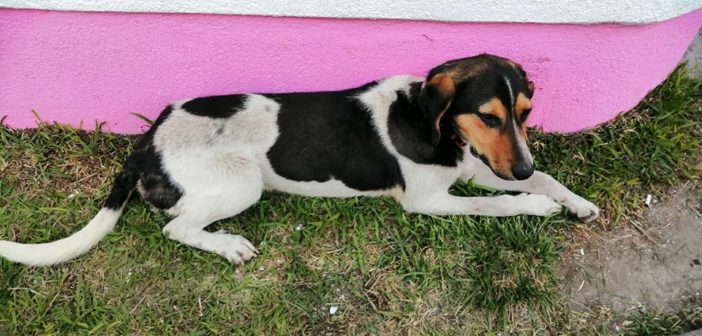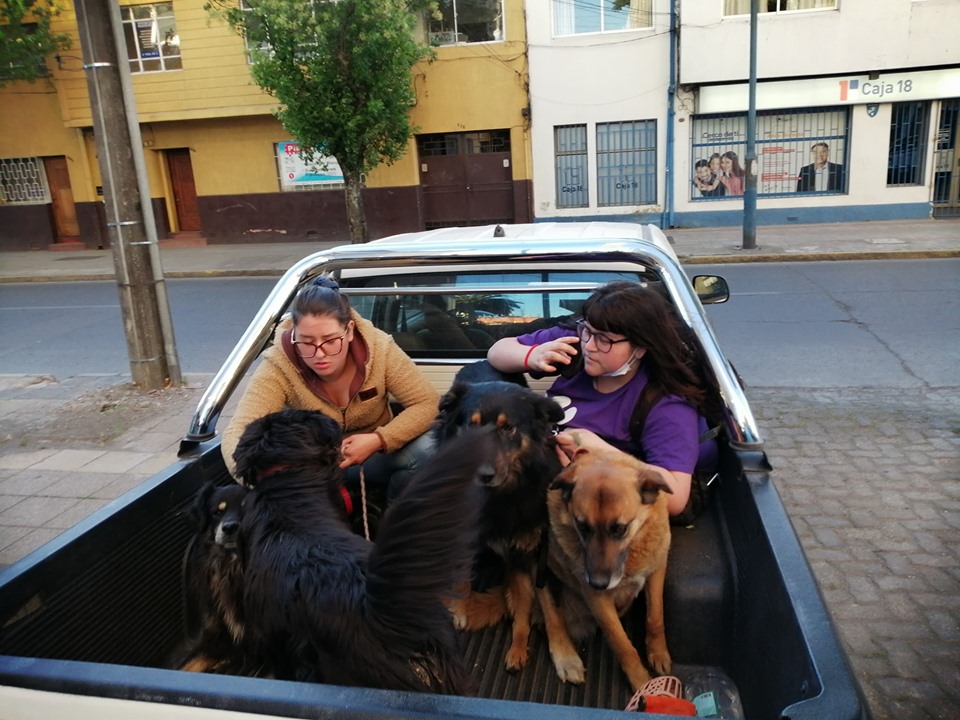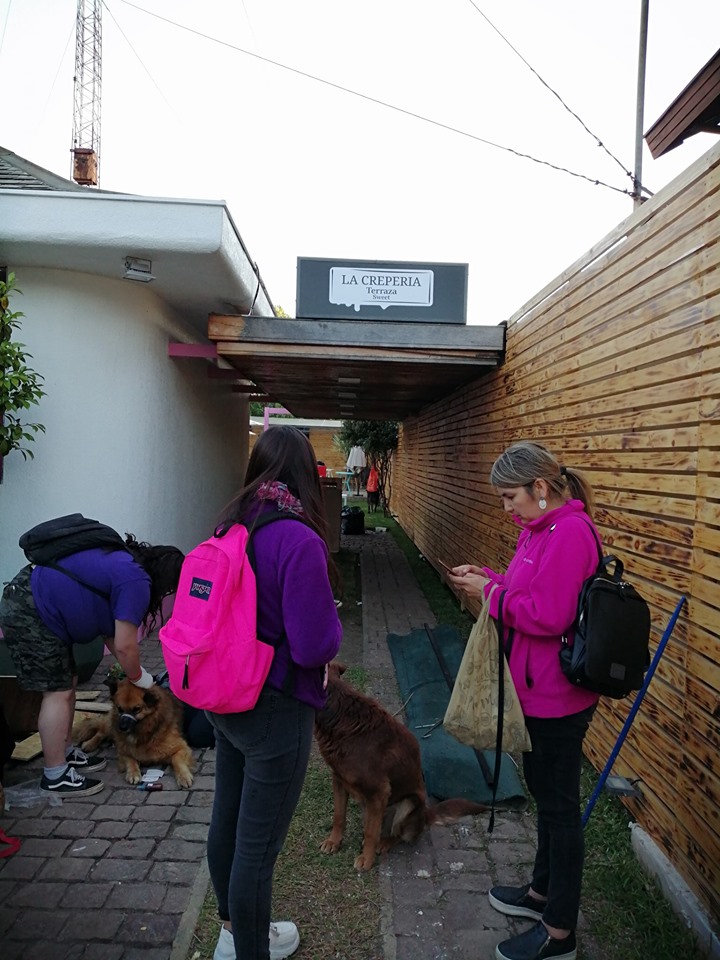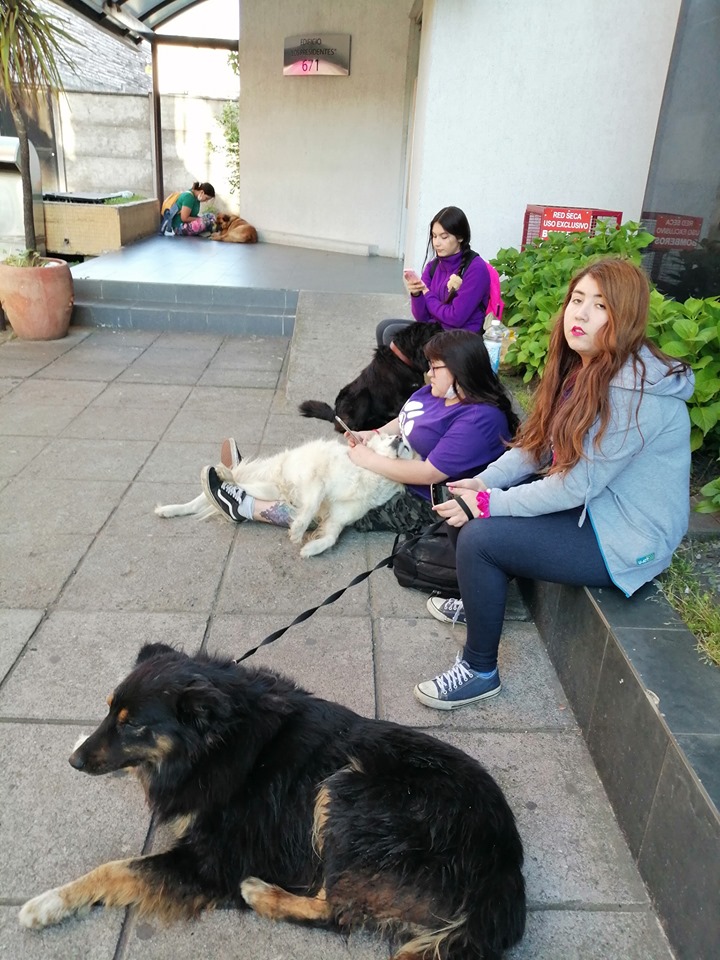Chile’s worst unrest in decades has transformed into a nationwide uprising for change. Tens of thousands of people have taken to the streets of the country.
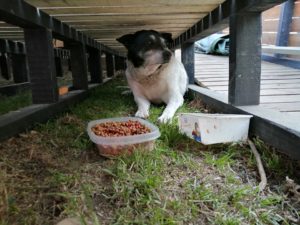
The most violent clashes occurred in the capital city of Santiago, but protests have happened all over the nation.
This unrest is difficult for the many free-roaming dogs that populate the Chilean streets. An estimated 253,000 stray dogs live in Chile, most of them in urban areas.
OIPA (International Organization for Animal Protection) has a team of volunteers in Chillán, the capital city of the Ñuble Region in central Chile. Over the most turbulent days, they have rescued dogs who are in greater danger, such as puppies, elderly dogs, and those with impaired mobility. They have brought the dogs to be sheltered in a safe place, a creperie with a large outdoor area.
The use of tear gas during demonstrations poses a danger to the life and health of free-roaming dogs, who wander the streets in a complete panic. Moreover, fear can sometimes turn the most peaceful dog into a dangerous one. Fortunately, the people who are protesting often take care of stray dogs and do their best to keep them safe.
Solidarity among protesters and stray dogs has a long tradition in Chile.
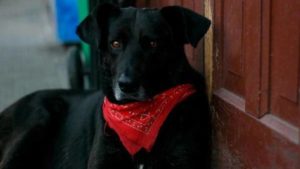
In 2011, Chile experienced a wave of student protests. One day, a stray dog joined the young protesters in a demonstration. He was friendly with the students and aggressive towards the Chilean police officers.
He soon became known as “Negro Matapacos,” slang for black cop-killer. He continued to take part in protests for years. Negro Matapacos remains an icon, the canine face of socialism and revolution.
A big thank you to Samuel, Angela and all other volunteers who are taking care of stray dogs in such a turbulent time.
Featured image: a free-roaming dog in Chile. Image credit OIPA Chile.

